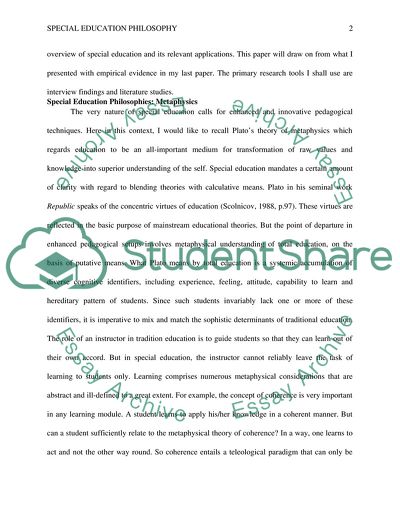Cite this document
(Special Education Philosophy Essay Example | Topics and Well Written Essays - 1750 words, n.d.)
Special Education Philosophy Essay Example | Topics and Well Written Essays - 1750 words. https://studentshare.org/education/1733068-my-special-educational-philosophy
Special Education Philosophy Essay Example | Topics and Well Written Essays - 1750 words. https://studentshare.org/education/1733068-my-special-educational-philosophy
(Special Education Philosophy Essay Example | Topics and Well Written Essays - 1750 Words)
Special Education Philosophy Essay Example | Topics and Well Written Essays - 1750 Words. https://studentshare.org/education/1733068-my-special-educational-philosophy.
Special Education Philosophy Essay Example | Topics and Well Written Essays - 1750 Words. https://studentshare.org/education/1733068-my-special-educational-philosophy.
“Special Education Philosophy Essay Example | Topics and Well Written Essays - 1750 Words”. https://studentshare.org/education/1733068-my-special-educational-philosophy.


